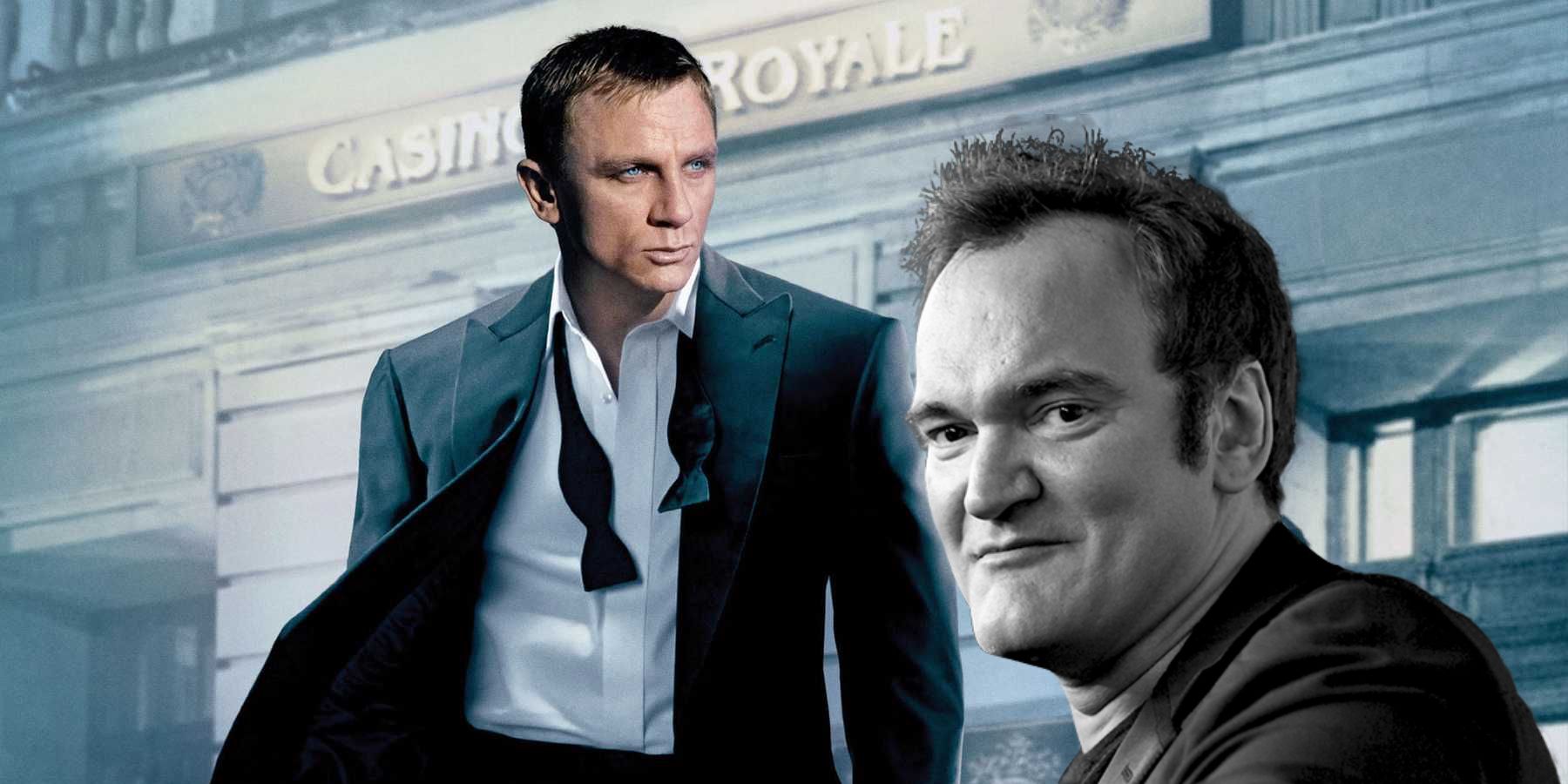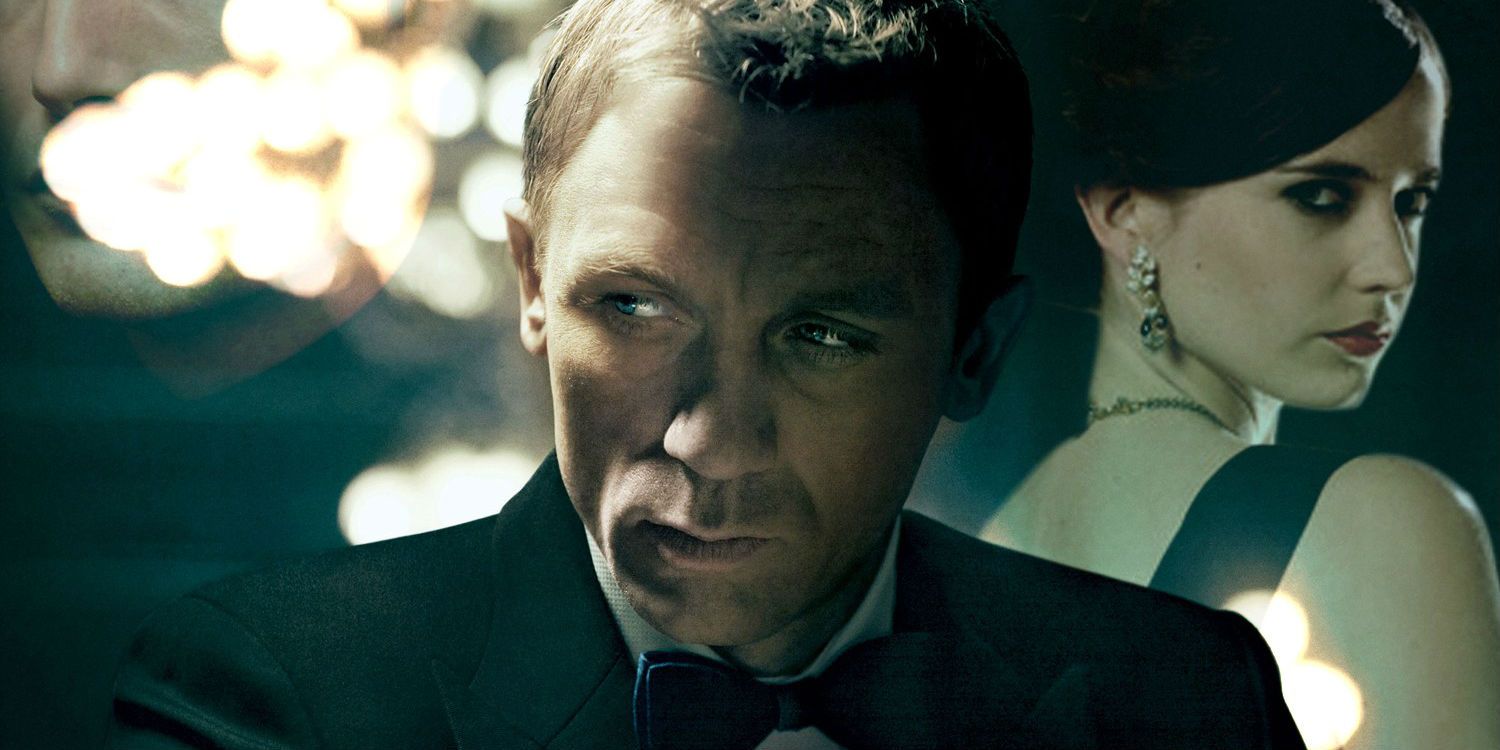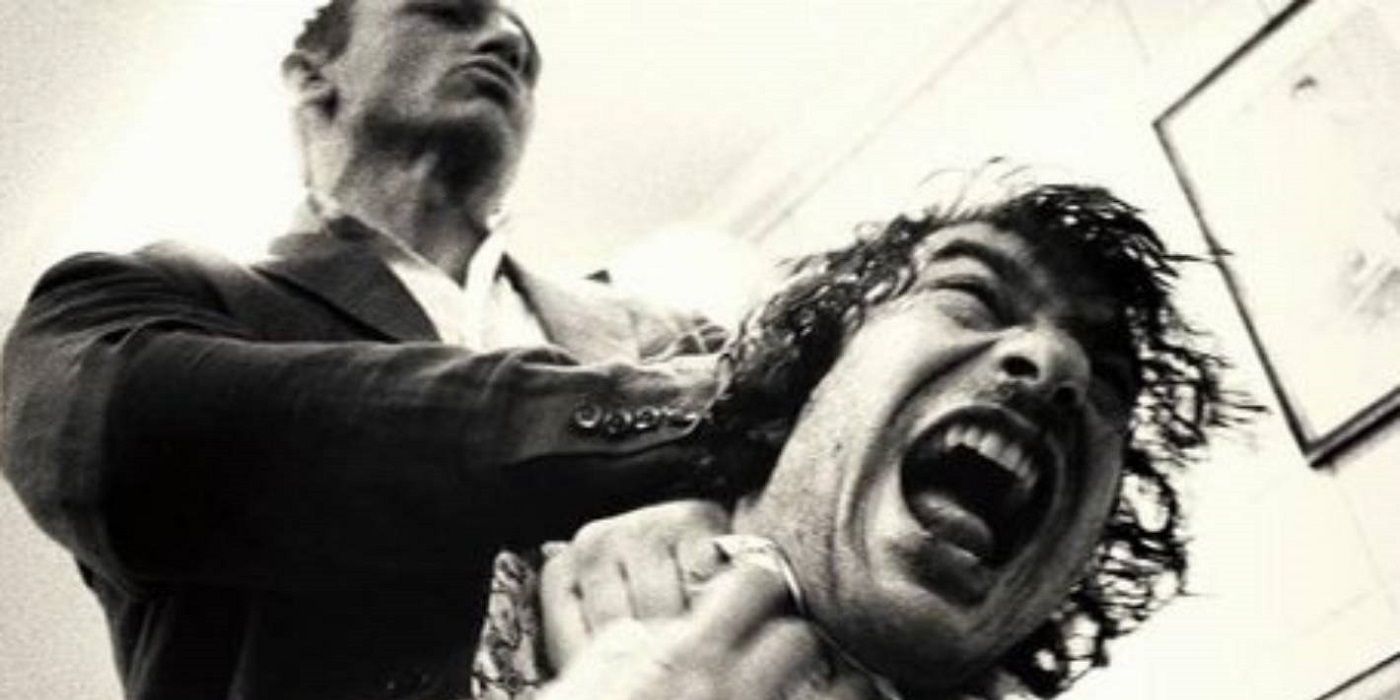
Despite the overwhelming critical acclaim for 2006's reboot of the James Bond franchise, Casino Royale, there's no denying that Quentin Tarantino's proposed take on the film would have been fascinating. The 56-year-old filmmaker has had a long and controversial career, mostly due to his films' subject matter as well as the exploitative and over-the-top nature of his approach to violence. However, criticisms aside, Tarantino has also become one of the most iconic directors of the 21st century, his directorial style becoming emblematic of an era of genuine risk-taking and envelope-pushing in film.
The James Bond franchise went through a similar reevaluation of risk-taking in the early 2000s. After a four-film run starting with 1995's GoldenEye, Pierce Brosnan stepped down from the role in early 2004, two years after the release of the middling Die Another Day. Eon Productions, the production company responsible for producing all 25 canonical Bond films, sought a reinvention of 007, one that doubled down on the realism and moral nuance of Bond in the aftermath of Brosnan's increasingly fantastical approach to the franchise.
While most people are aware that Eon gifted the keys of the franchise to actor Daniel Craig and director Martin Campbell, there was a period of time when the fate of the franchise wasn't so concrete. And in 2004, hot off the success of Kill Bill Vol. 1 and 2, Quentin Tarantino pitched his take on Casino Royale.

Before Casino Royale, the Bond franchise was in a precarious position. Starting in 1995 with the release of GoldenEye, the films were almost soft sci-fi, with outlandish action set pieces as well as high-tech gadgets that pushed the boundaries of real-world science. Pierce Brosnan had replaced his predecessor Timothy Dalton in the lead role to mark the transition of the franchise into more over-the-top blockbuster fare. The result was a success at first, with GoldenEye grossing $355 million on a budget of $60 million. Each successive film did relatively as well, despite lukewarm reception from critics, until the release of Brosnan's final film Die Another Day, which grossed $432 million at the box office.
With Brosnan's four-film contract over, Eon Productions searched for a new angle with which to approach the franchise. As the Brosnan era went on, critics began criticizing the emphasis on high-tech gadgets, absurd action stunts, and dated CGI. The filmmakers behind the scenes started agree, and screenwriters Neal Purvis and Robert Wade began writing a script for Casino Royale with Brosnan still in mind, hoping to return the character to his roots.
However, Eon decided to take the script and use it as a total reboot for the Bond franchise. The production company announced in February of 2005 that Martin Campbell would officially direct the film, and after screening more than 200 actors (including Karl Urban, Sam Worthington, and a young Henry Cavill), Daniel Craig was finally cast in October of that year. While his casting was met with controversy, Casino Royale was released on November 17, 2006 and grossed over $600 million at the box office, becoming the highest-grossing Bond film before the release of 2012's Skyfall.

Back in 1999, way before starting production on their reboot, Eon Productions actually had to regain the film rights to Ian Fleming's original novel Casino Royale, as that story technically wasn't part of the rights to the Bond film franchise and were owned by Sony at the time. Sony parted ways with the film rights to the book in exchange for MGM's ownership of Spider-Man, but before Eon actually completed the deal, several high-profile bids were made for the film rights. One of the people involved in these bids was Quentin Tarantino.
Flash-forward to 2004, and after Brosnan announced his departure from the franchise in February, Tarantino began talking to media outlets about his proposed plan to bring Brosnan back for a fifth and final film. His angle was to convince Bond producers Michael G. Wilson and Barbara Broccoli to lose the hundred-million dollar budgets as well as the exaggerated set-pieces, and return to the character-driven spy plots that defined the earlier films. At the Cannes Film Festival later that year, Tarantino confirmed that he'd pitched the project to Pierce Brosnan himself (over martinis, no less), who was open to the idea of returning.
As the year went on, more details started to emerge, mostly from Tarantino himself. The director desperately wanted to make the film a 1960's period piece, but he admitted that if he were offered the film on Eon's terms, he would set it in the modern day. Tarantino expressed a desire to cast Uma Thurman in the role of Vesper Lynd, who was played by Eva Green in the 2006 version, as their working relationship at the time was stronger than ever. There were also rumors that he wanted the movie to be shot entirely in black-and-white, a visual component that would have set the movie apart from every other Bond film and made it distinctly Tarantino.

Unfortunately, like so many shelved projects from the era, fans would never get to see what this hypothetical version of the film would have looked like. In November of 2004, during an interview with the New York Times, Brosnan confirmed that Tarantino's vision for the project was dead and that he would not be returning for a fifth Bond film. The actor pitched the idea to the Broccoli estate, and was promptly turned down, although he never disclosed the exact reason why. This soured Tarantino on the franchise, and in 2007 he revealed in an interview that he hadn't even seen Casino Royale, expressing his frustration that the Bond producers would move ahead the rebooted Casino Royale without consulting him first.
There are a multitude of reasons why Tarantino's film never got made, nearly all of them the result of behind-the-scenes decisions. First, Brosnan had already done four Bond films, and while he was paid a modest $4 million for his role in GoldenEye, that number had grown to $16.5 million by the time that Die Another Day was released. It's entirely possible that Eon and the Broccoli family simply didn't want to pay Brosnan that much to return for a fifth film, especially considering the mixed critical reception that his era of films had received. There's also the nature of Quentin Tarantino as a filmmaker, a director who seems to revel in extreme displays of violence, crass language, and suggestive situations, all elements that might not have worked in a franchise without a single R-rated film.
In all likelihood, the reason that Tarantino's Bond film never got made is that the producers have a very distinct formula for how to approach Bond, and even when the franchise is being reinvented, that formula can't be stretched too far. There's a reason why we've never had a James Bond film with full-frontal nudity, indulgent gore, or even an abundance of foul language. While Quentin Tarantino's Casino Royale would certainly have been an interesting and unique approach to the character, there's no guarantee that it would have been better than the critically acclaimed 2006 outing that introduced the world to Daniel Craig's ruthless and vulnerable Bond.
from ScreenRant - Feed https://ift.tt/3av39ki

0 comments:
Post a Comment